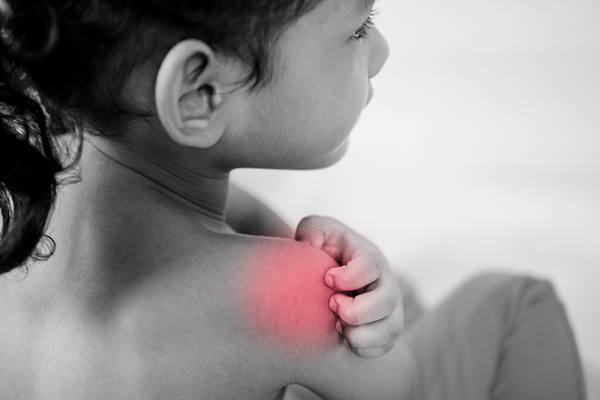In a study that highlights racial disparities in the everyday impact of eczema, new research shows Hispanic and black children are more likely than white children to miss school due to the chronic skin disease. Researchers from the Perelman School of Medicine examined more than a decade’s-worth of data among children enrolled in a national eczema registry and found Hispanic children were most likely to have missed at least six days of school over a six-month period due to their condition. Black children also saw higher probabilities of missed school days compared to white children. The study is published in JAMA Dermatology.
Eczema, or atopic dermatitis, is a common inflammatory disease that causes red and itchy skin. It affects about 30 million Americans in total, including up to 20 percent of children in the United States, according to the Centers for Disease Control. It is more common among black children and slightly more common in Hispanic children when compared with whites. In addition to the physical impact, eczema is associated with negative psychological effects, including an increased likelihood of anxiety and depression.
“The effects of eczema are more than skin-deep, and studies have shown that the mental health and social impact of this condition can be significant—sometimes just as much or more than the physical—and may lead to a higher number of school days missed,” says lead author Joy Wan, a post-doctoral fellow and instructor of dermatology.
Read more at Penn Medicine News.








